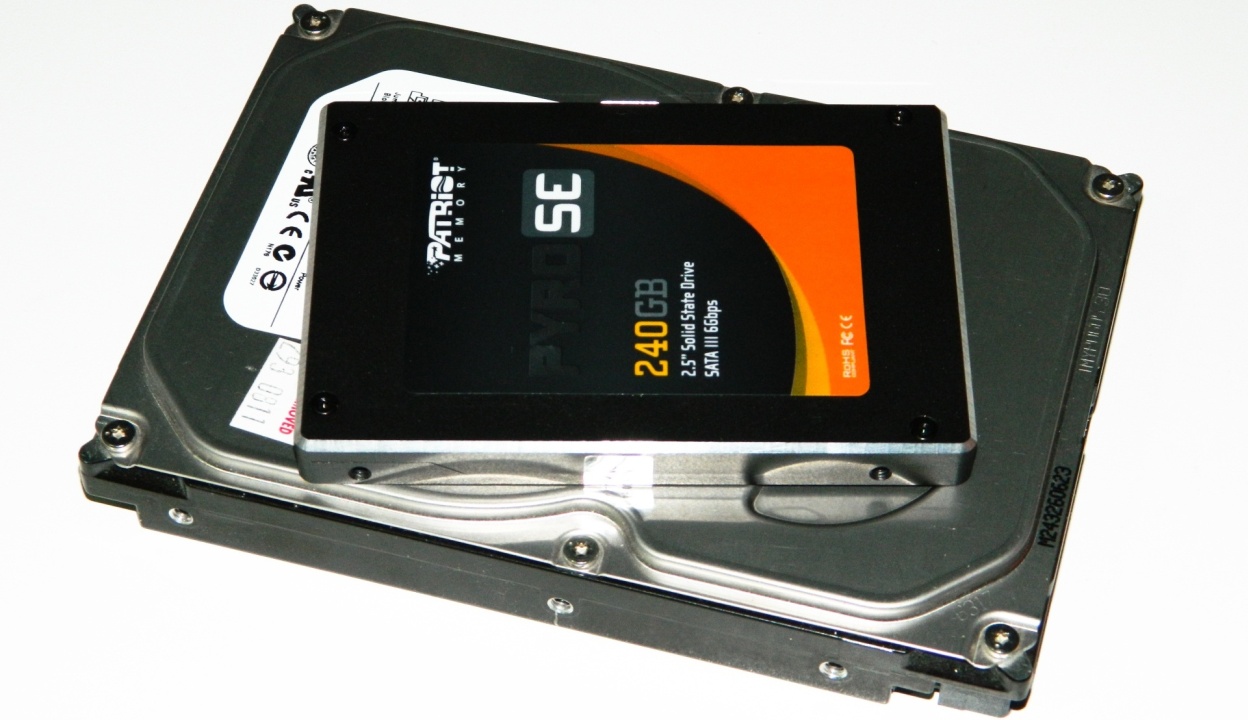 Image courtesy rushinformation.com
Image courtesy rushinformation.comSSD has been in the market for a few years now. Until recently, we had only brands and models to make comparison of the HDD but not since SSD came in. It provides us more options for our storage. If you bought an ultrabook or macbook recently, you most probably are using SSD as the primary drive.
HDD Technology Explained
HDD or Hard Disk Drive was introduced by IBM in 1956 and has been the defacto secondary storage for general purpose computer since. Each HDD contains a spindle, an actuator arm and layers of thins plates which stores your data. The actuator arm is the one that reads the data from the thin plates. While technology has evolved since then and HDD idea allow manufacturer to produce high capacity drives at a low cost, HDD has reached its limit in term of speed due to the dependency on the mechanical parts. Nowadays you can get up to 6TB of hard disk space from a HDD but the speed remains at 5400 rpm or 7200 rpm for standard HDD.
SSD Technology Explained (Image on the left)
Solid State Drive (SSD) (some referred as solid-state disk or electronic disk) surprisingly has been around since the 1950’s. (http://en.wikipedia.org/wiki/Solid-state_drive) Many attempts have been made to make it a viable product but due to the prohibitively high price and low disk space, they were seldom used that is until recently it gains popularity when it provide greater speed than HDD and larger storage (up to 1.2TB at the time of writing) at a competitive price.
SSD is mainly built using circuits and NAND Flash. The NAND Flash is where your data is stored. Since it’s mostly electronic, it does not have dependency on mechanical rotating parts which means the speed is dependent on chip/circuit it uses. We have seen CPU/processing time is double every 18 months, we can surely expect that SSD speed will be pretty much the same.
Advantage of SSD
1. SSDs are more durable – since it does not have any mechanical parts and rely on NAND flash, it is designed to resist shock up to 1500g/0.5ms.
2. SSDs are way faster than HDD and quieter– with the less dependencies on mechanical and rotating parts, SSD can have 100 times greater performance, almost instantaneous data access, quicker boot ups, faster file transfers and overall snappier computing experience. It is quieter. Imagine a fan (HDD) and imagine natural wind flow (SSD).
3. SSDs consume less power and much cooler – again, with the less dependency on mechanical part, SSD required half to a third of the power of HDD. This is more apparent with higher capacity and faster HDD. Generally, consumer SSD use less than 2 Watts compared to consumer HDD at 6 Watts. With less power comes with less heat output ;)
4. SSDs are lighter – without the extra weight from the platters and other mechanical parts, the average SSD weight is around 77g compared to HDD which 750g.
Advantage of HDD
1. HDDs provide more storage per dollar than SSD – the highest capacity available on market for SSD today is 4TB and it cost around USD 29,000 compared to 6TB SATA HDD which cost about USD 250. That’s about 100 times cheaper than SSD. For consumer grade SSD, for 1TB is around S$ 999 and 4TB HDD at S$235.
2. HDDs are easily available – HDD won’t be going away at least for the next couple of years. You have many choices of brands and manufacturer compared to SSD. There is also a few occurrence of NAND Flash (main component in SSD) shortage which caused the SSD price to rise.
End note
If you have the need for speed, like playing high performance games or just want to have better computer experience, get SSD for your system drive (Operating System).
If you need bigger storage to keep your personal data such family pictures, music, videos and working files, get HDD. It’s cheaper, get two and mirror each other for redundancy purpose in case 1 fails on you.
You can use both if you are using a PC or desktop. For laptop it will be a bit of challenge because due to constraint on the space in the laptop itself.
Fynd provides Laptop, Desktop, Smartphone, Network setup & repair service in Singapore. Our services include laptop, desktop repair, data recovery, setup & maintenance of your IT infrastructures and also 24/7 onsite IT support services.
